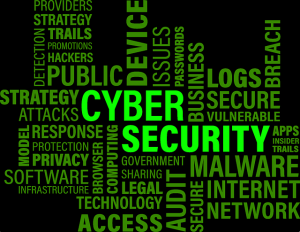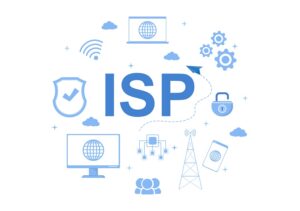Few Things You Should Know Before Buying an SSL Certificate

70% of online shoppers can abandon your website if they saw, you do not have a valid SSL certificate.
If you own a website, you would have certainly heard about SSL certificates.It helps to keep your site secure from hackers and phishers. Before you go on to purchase one, it is important that you understand what they are and the benefits of having them on your website.
In this article, we will go through some checklists before buying an SSL certificate. SSL stands for ‘Secure Socket Layer’, which is a security protocol that is employed to safeguard information between two parties (the server and the browser). In order to achieve this, it makes use of cryptography to bind details together that remains encrypted and hide from the third party.
Why do I need an SSL Certificate?
An organization needs to install a dedicated SSL certificate onto its web server to initiate secure sessions with browsers. This is very similar to sealing a letter before sending it through the mail. In this case, the bonding layer is the SSL certificate.
An SSL Certificate is mainly used to secure credit card transactions, user login, and data transfer involving sensitive information. However, the chances of your website-catching bug are extremely low when you have an SSL certificate and proper security measures installed.
Finest Web Protection from Top Most CAs:
While considering certain methodologies, W3Techs have researched on usage of SSL certificates top most 10 million popular ranking websites and the May 2016 report stated that out of them 32.1% websites have no SSL while 0.3% were using Self-Signed certificate (which is dangerous and generally not recognized by browser.) There were 0.3% SSL certificates were not timely renewed and showing expired status.
If we talk about the top most CA (certificate authority) then Comodo is leading the race with 40.6% market share, around 8.4% websites across the global are using Comodo SSL certificates. While the subsequent numbers of market share are Symantec Group with 24.9%, Godaddy Group with 11.4%, GlobalSign with 9.4% market share and so on.
Compare to the previous year 2015 report, the leading position remained the same but with different market share ratio for example, in May 2015, Comodo was there on leading position but with 35.3% share while Symantec Group was in the second position with 32.2% market share. All certificate authorities are providing quality certificates but Comodo Group is strengthening its position in the market to sustain its leadership over other market players.
Difference between SSL Certificates:
Depending on your needs, you may opt for a dedicated SSL certificate or a shared SSL certificate. The choice depends on the kind of business as well as your budget.
Shared SSL Certificate:
This is a certificate that you share with other vendors / organizations. These are usually provided by web hosting services for a monthly fee. The shared SSL does not use your domain name, but the server hostname is used in place of your domain name to allow secure connections.
The main disadvantage of this is that your name would not be published on it. If you own an e-commerce website, this is something to be worried about, as many users would abandon the website due to privacy concerns. On the other hand, if you are counting your pennies opting for this would save a few bucks.
Dedicated SSL Certificate:
Also referred to as a private SSL certificate, this has your domain name mentioned in it. While this is much secured in comparison to a shared SSL certificate, you are in charge of your domain’s protection. It will verify your domain ownership as well business reliability by confirming organization documents, where process depends on upon the certificate you choose.
When customers see HTTPS, padlock and your company name in the browser, it boosts your website’s credibility; as well, customers would like to deal with your website.
What Encryption Strength Do Vendors Offer?
The encryption strength offered from different certificate authorities is 40-bit, 56-bit, 128-bit, and 256-bit encryption. Currently, most of the certificate authorities are offering 256-bit encryption with an SHA-2 algorithm that makes encryption tough from being visible by any third party.
The strength of encryption depends on the degree of encryption provided by the browser and the web server on which the website is hosted. SSL certificates offer 2048-bit root certificates for unmatched security.The cost of your SSL certificate would be directly relative to the validation that it offers.
Some CAs is offering free unlimited server licenses and some are charged for each additional server license. You should ensure that your certificate vendor offers unlimited server licenses or not. If yes, then you can use the same certificate on the additional server without spending any single penny.
Types of SSL Certificates
SSL certificates are broadly classified into three categories depending on their validation properties.
Domain Validation:
Domain validation is exclusively used by low volume based websites, beginner in online business, low budget websites. DVcertificate follows the low level of validation process as the CA only verifies the domain name ownership of the applicant. There is no business vetting process involved in DV certificate. Once it is verified, the CA sends the certificate via email to the website owner.
Organization Validation:
In this case,the authority checks the domain ownership along with vetting the organization. When customers click on the secure site seal, they would get the vetted information about the business. Corporations and government organizations that are looking for enhanced organizational security usually use this type of SSL certification.
Extended Validation:
This kind of certificate is intended to give confidence among users that access your website. It also shows that the owner of the website is genuine and can be trusted. Extended validation turns the address bar into a green color and display company name in the browser that shows the highest authenticity of the website and attracts customers to deal with the website.
Extended Validation (EV) certificate provides the highest validation of business as the CA checks the ownership of the domain, the business-vetting process according to prescribed guidelines. Specifically, this tells the others, they are viewing an authentic website and that they are not victims of phishing, which is why it is largely popular in the e-commerce segment.E-commerce websites, social media websites, financial banks, and institutions prefer EV certificate for their websites.
Do I Need Security for more than One Domain / Sub-domain?
While there is a restriction on the number of SSL certificates allocated per cPanel, it is possible to have multiple domains on a single website that need to be incorporated into a single SSL certificate. In order to do this, you’d have to purchase a multi-domain SSL certificate.
Although this is expensive compared to a single domain SSL certificate, but you would be able to manage all the domains conveniently through a common account. Another benefit of opting for a multi-domain SSL certificate is that you would be able to save the cost of purchasing multiple certificates for an individual domain.
In case, if you have multiple subdomains on a single root domain, then you should go with wildcard SSL certificate. Wildcard SSL secures your main domain along with unlimited sub domains. It is a time and money saving solution that will reduce your management cost, you do not need to put an extra effort to manage multiple certificates like purchase, renewal, expiry, installation, revocation, etc.






